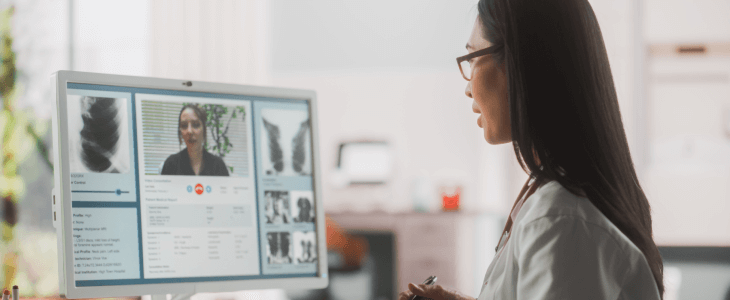Many healthcare providers now provide telehealth services to patients. Telehealth offers many benefits, including increased affordability and accessibility. However, telehealth also has its downsides, including an increased risk of medical malpractice. In this article, we discuss four medical malpractice telemedicine risks.
What is Telehealth?
Telehealth, which is also known as telemedicine, allows healthcare providers to provide care to patients electronically. Specifically, telehealth is often provided via a smartphone, computer, or tablet. Telehealth allows patients to:
- Communicate with healthcare providers over the phone or via video chat
- Communicate with healthcare providers via email, secure messaging, and secure file exchange
- Utilize remote monitoring that enables healthcare providers to check on patients while they are at home.
What is Medical Malpractice?
As noted above, although telehealth offers many benefits, it also increases the risk of medical malpractice. Medical malpractice occurs when a doctor or other healthcare provider’s failure to adhere to the required medical standard of care results in an injury of some sort to a patient. Common types of medical malpractice include:
- Surgical errors
- Incorrect prescriptions
- Misdiagnosis
4 Common Telehealth Medical Malpractice Risks
Since telehealth relies on technology, telehealth medical malpractice risks typically include things like failures to diagnose or recognize symptoms of an illness. In addition, as explained below, misdiagnosis is a common telehealth medical malpractice risk. Risks of telehealth also may include Health Insurance Portability and Accountability Act of 1996 (HIPAA) violations and data breaches. Four common medical malpractice telemedicine risks are:
#1: Misdiagnosis: It is much easier for healthcare providers to evaluate symptoms and diagnose illnesses in person. Unfortunately, this means that telehealth increases the risk of misdiagnosis. In fact, according to studies, the misdiagnosis of stroke, cancer, and infection accounts for the majority of telehealth medical malpractice claims.
#2: Data breaches: Although telehealth has made healthcare services more accessible, communicating electronically increases the risk of data breaches. And these risks increase when providers use unencrypted platforms that don’t adhere to HIPAA requirements.
#3: HIPAA violations: Medical providers are required to adhere to HIPAA guidelines during telehealth visits. Unfortunately, telehealth services increase the risk of HIPAA violations. Therefore, healthcare providers should refrain from using telehealth platforms that are noncompliant with HIPAA guidelines.
#4: Technical glitches: Finally, all technology is prone to glitches and failures. When this happens in the area of telehealth, patient information can be lost or altered, leading to mistakes that constitute medical malpractice.
Contact a Medical Malpractice Telemedicine Lawyer
If you are a medical malpractice victim, Dell & Dean, PLLC, is here to help you. When you come to us for assistance with your medical malpractice case, our Long Island medical malpractice lawyers will put our experience and knowledge to work for you. Specifically, after analyzing the facts of your case, we will develop a case strategy and aggressively pursue financial compensation on your behalf. Please contact us to schedule an initial consultation with an experienced Long Island medical malpractice lawyer.

